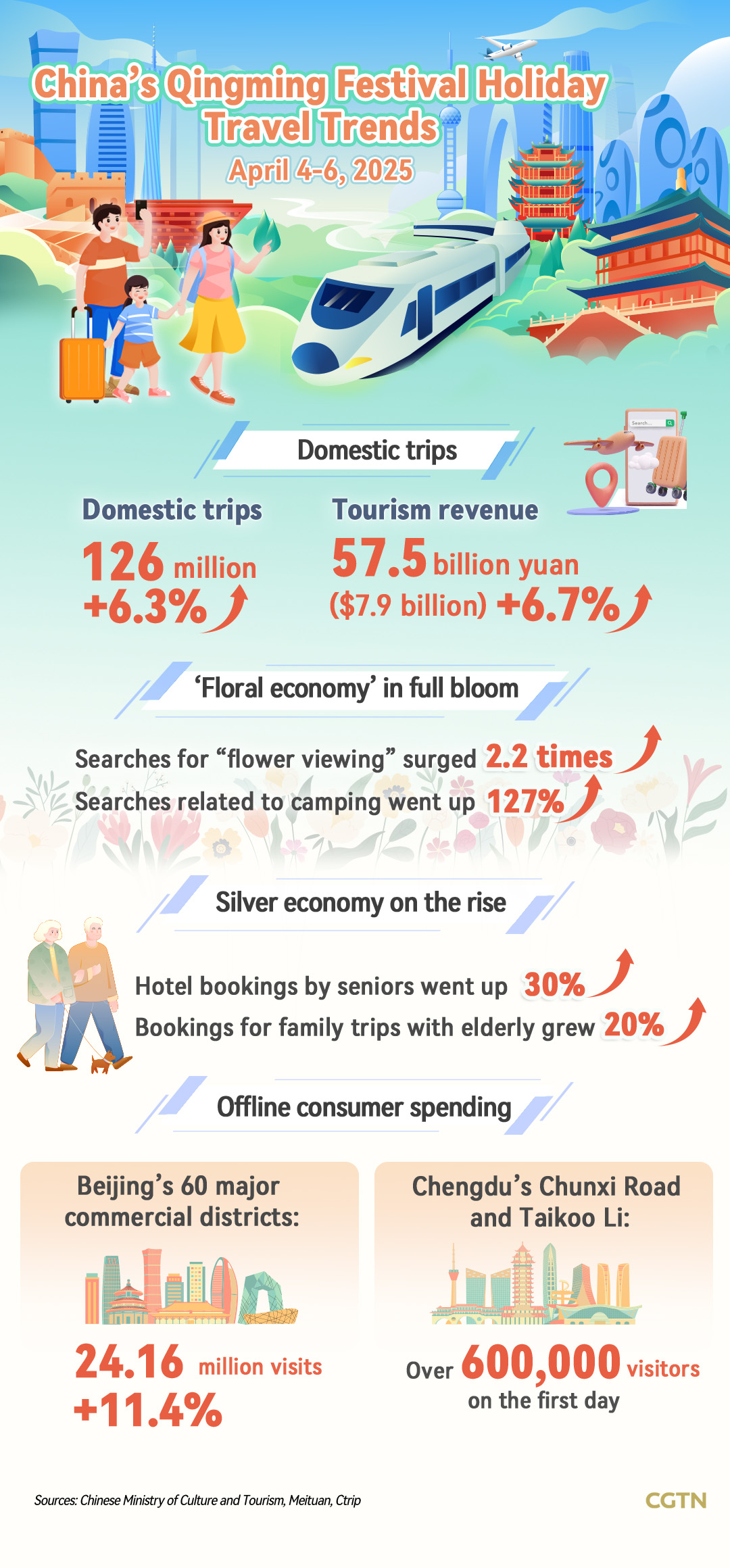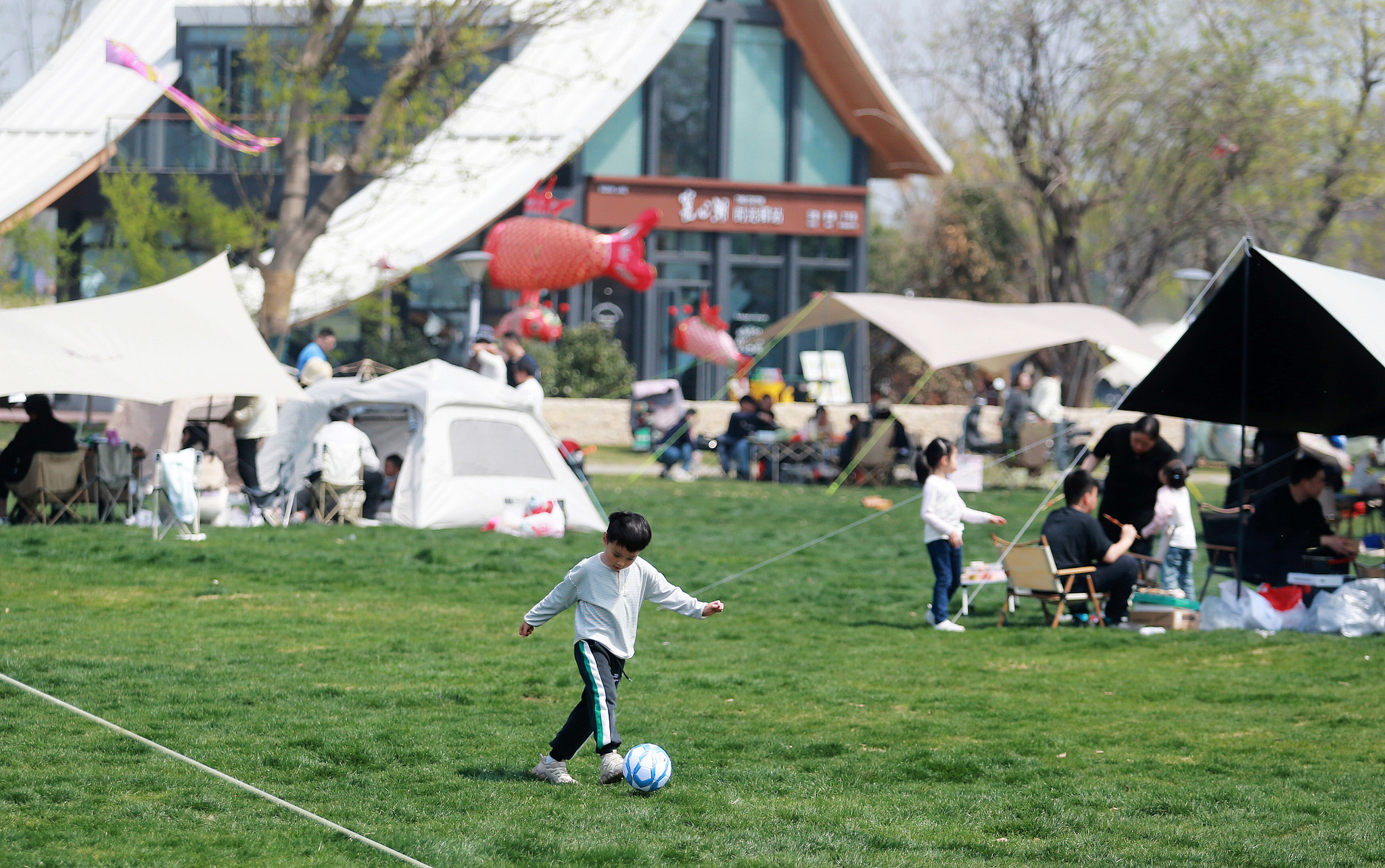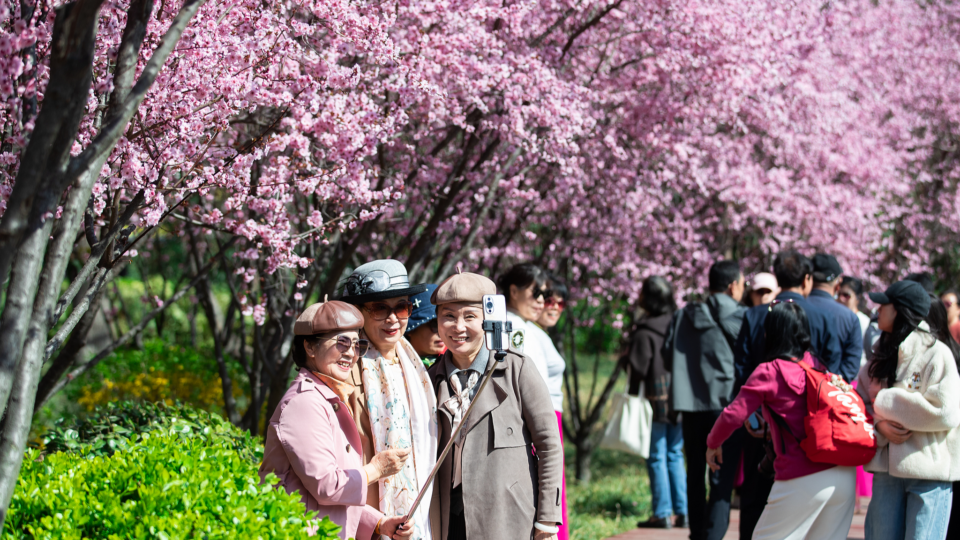Tourists take a selfie in front of the cherry blossoms in Qingdao, east China’s Shandong Province, April 5, 2025. /VCG
China saw robust travel during the three-day Qingming Festival holiday, which concluded on Sunday.
According to the Ministry of Culture and Tourism, a total of 126 million domestic trips were made across the country during the holiday, a year-on-year increase of 6.3 percent, while the total expenditure on domestic travel reached 57.549 billion yuan (about $7.9 billion), posting an increase of 6.7 percent over the same period last year.

According to data from Chinese mobile car-hailing platform DiDi Chuxing, the demand for taxis during the holiday increased by 14 percent year on year. During peak periods, the demand exceeded 110,000 orders per minute.
Meanwhile, the country’s border inspection agencies recorded a total of 6.21 million cross-border trips – an average of 2.07 million trips per day, posting a year-on-year increase of 19.7 percent, said the National Immigration Administration. The number of such trips made by foreigners reached 697,000, up 39.5 percent compared with 2024.
Short trips and local tours also became popular choices during this holiday. According to online travel platforms, the number of orders for nearby tours increased by 136 percent, with more than 70 percent of tourists traveling for less than three days, and 44 percent choosing to travel by car.

People relax at a camping base in Yangzhou, east China’s Jiangsu Province, April 5, 2025. /VCG
Blooming ‘spring economy’
During the holiday, new scenarios drove consumption, providing tourists with fresh experiences. In particular, flower appreciation, outings and outdoor sports boomed, boosting the “spring economy.”
A surge in flower appreciation across the country has driven the development of urban leisure and rural tourism. Data from online travel platforms showed that the number of searches related to “flower viewing” during the holiday increased 2.2 times compared with the same period in 2024.
For example, southwest China’s Sichuan Province has launched helicopter tours to allow tourists to appreciate flowers from above.
A cherry blossom festival kicked off in east China’s Shanghai, where visitors enjoyed nighttime cherry blossom viewing in a romantic and enchanting atmosphere. Combining with traditional Chinese cultural activities and intangible cultural heritage displays, the festival has become a must-visit attraction for tourists.
Thanks to the sunny weather during the holiday, outdoor camping sites were also a hit among visitors, leading to the continued rise in the “camping fever.”
At a camping base in Wuyi County, east China’s Zhejiang Province, tourists enjoyed a variety of events provided by the base, such as meditation, boat rowing and movie watching.
A representative of one camping base told China Media Group (CMG) that the place usually receives about 5,000 to 6,000 people a day on the weekend, and it reached a small peak during the Qingming Festival holiday.
Meanwhile, “camping fever” has also boosted the production and sales of outdoor leisure products companies.
“Compared with last year, the order volume has increased by about 20 to 30 percent, and our orders are now scheduled until May,” Wang Xueming, director of a leisure product company in Zhejiang, told CMG.
While activating the vitality of traditional culture, new consumption frontiers are breaking boundaries and injecting new impetus into the cultural and tourism market, said Shen Jiani, a senior researcher at the strategic research center of the Ctrip Research Institute.



